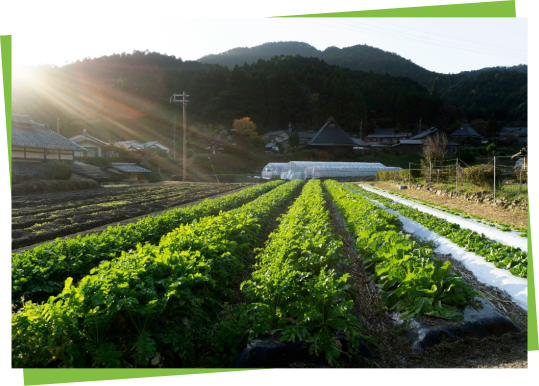866-99-RECYCLE
Biochar Feedstock & Market Development Solutions
At Shapiro, we’re dedicated to the de-carbonization of our environment and the re-carbonization of our soil. Our comprehensive biomass waste management services offer environmentally friendly, cost-efficient solutions to agricultural waste. As a biochar company, our end-to-end services aid in the development of biomass feedstock streams, guiding you through the entire process to help you minimize your environmental footprint.
With innovation a top priority, our commercial biochar production services leverage biochar as a key soil amendment, furthering our commitment to support a circular economy and providing sustainable solutions that recycle organic materials back into the production cycle.

What is Biochar?

Sustainability Impact of Biochar
There are also many benefits of biochar for soil due to its ability to add nutrients to the soil, improve water and nutrient retention, and provide lasting benefits for soil health, fertility, and productivity.
Commercial biochar production is also an efficient solution to agricultural waste, helping to divert waste from landfills, acting as a great substitute for chemical fertilizers, and helping farmers minimize their environmental footprint.

Our Biochar Services
Feedstock Identification and Collection
Feedstock Transport
Feedstock Storage and Pre-Processing
Organic Feedstock Supplier
Biochar Brokerage Services
Utilizing Biomass for a Greener Planet
Carbon Sequestration
Biochar carbon removal refers to biochar’s ability to retain large quantities of carbon for hundreds of thousands of years, making it a great solution for reducing greenhouse gas levels and combating climate change.
Waste Reduction
By utilizing waste as feedstock for biochar production, businesses can promote a circular economy by turning agricultural and forestry waste into a valuable resource.
Soil Health Improvement
Biochar improves soil fertility by adding nutrients to the soil, helping it retain nutrients from other sources, and improving its ability to retain water, all of which lead to healthier plant growth.
Enhanced Crop Yields
Biochar’s long-lasting impact on soil helps improve plant growth, enhance crop yields, and increase food production in areas with limited resources.
Water Quality Preservation
Biochar can absorb and neutralize pollutants and significantly increase water retention capacity, therefore improving water quality and ecosystem health.
Frequently Asked Questions
Contact us
Still Have Questions?
About
Contact Info
-
Skip Shapiro Enterprises, LLC
318 Hawthorn St.
New Bedford, MA 02740 -
Call or Text: 866-99-RECYCLE
(866-997-3292) Office: 866-997-3292 Fax: 810-958-4695 - customerservice@shapiroe.com
- shapiroe.com
2024 © Copyright, Shapiro. All Rights Reserved. Privacy Policy | Terms & Conditions